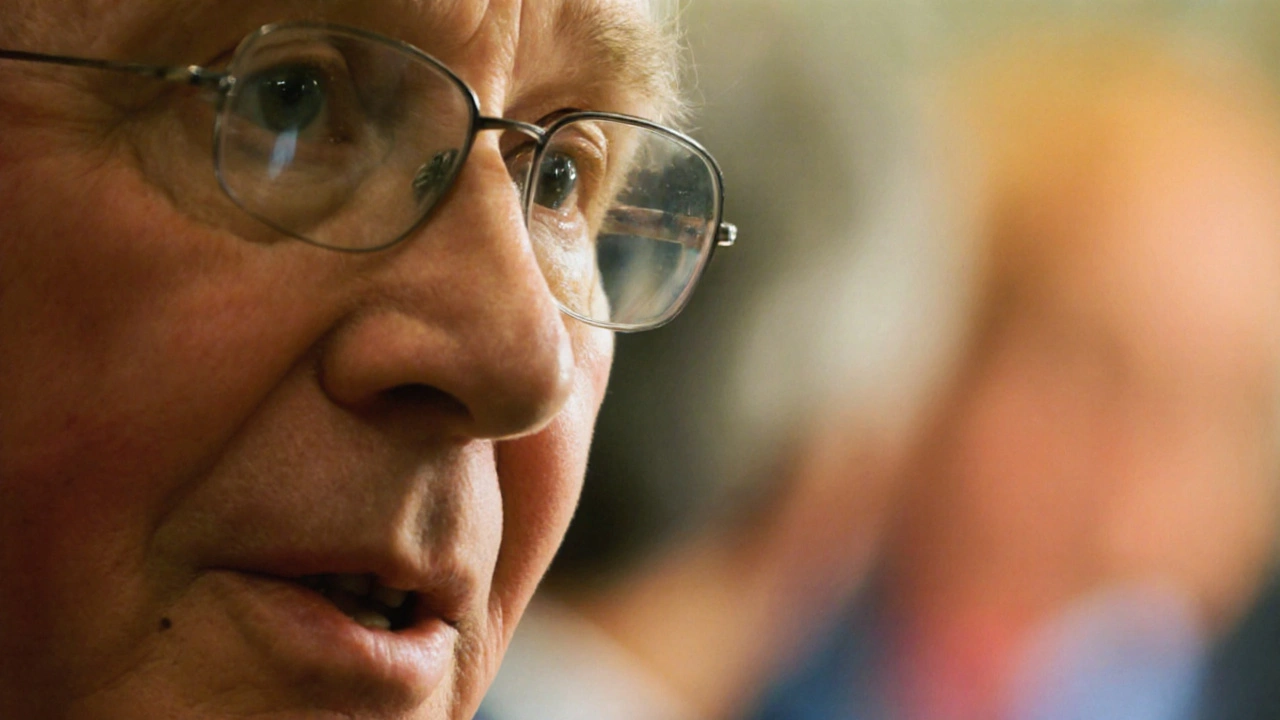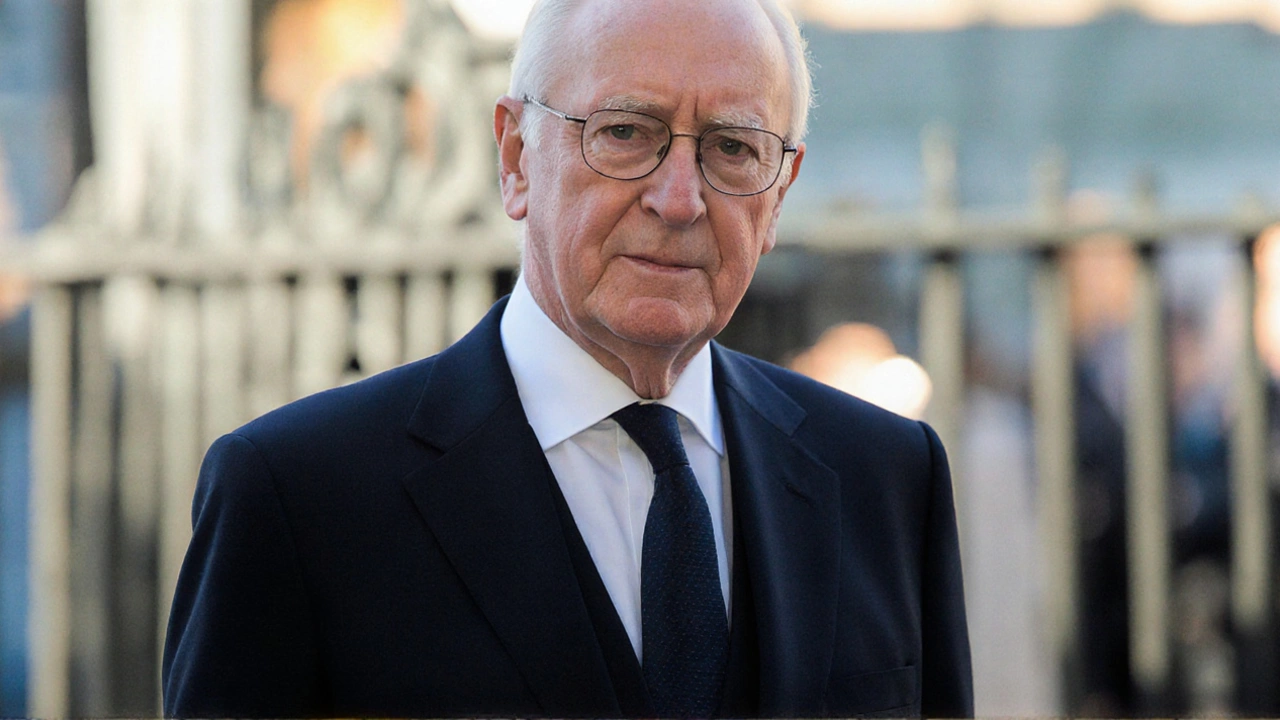The Life of a Gentleman Politician
On 26 September 2025, the United Kingdom said goodbye to Menzies Campbell, a figure who seemed to belong to a different era of public service. Known affectionately as “Ming” or the "Flying Scotsman" for his sprinting days, Campbell blended athletic brilliance, legal acumen and liberal politics into a career that spanned more than six decades.
Born on 22 May 1941 in Glasgow, Campbell grew up in a post‑war Britain that valued perseverance and decorum. He earned a first‑class degree in Law from the University of Glasgow and was called to the Bar at Middle Temple in 1968. His legal practice, which included a senior counsel appointment (QC) in 1995, gave him a reputation for meticulous argument and a calm courtroom demeanor—traits that later defined his parliamentary style.
Before the law, sport defined his youth. In 1964 he sprinted for Great Britain at the Tokyo Olympics, and from 1967 to 1974 he held the UK 100‑metre record. The nickname "The Flying Scotsman" stuck, but Campbell never let his athletic fame eclipse his public‑service ambitions.

From the Track to the Treasury Bench
Campbell entered Parliament in the 1987 general election, winning the seat of North East Fife. Over the next 28 years he became one of the most consistent Liberal voices in Westminster, championing civil liberties, education reform and stronger ties with Europe. His speeches were noted for their civility; he often quoted poetry, and he never resorted to the shouting that characterises modern debates.
When Charles Kennedy resigned amid personal turmoil in 2006, the party turned to Campbell, then 64, for steady leadership. His tenure as leader of the Liberal Democrats lasted just over a year, ending in October 2007. Though brief, his time at the helm coincided with turbulent moments: Gordon Brown’s surprise decision not to call an early election, and internal debates over the party’s identity in a post‑New Labour landscape.
Campbell’s resignation was announced from the steps of Cowley Street, with Party President Simon Hughes and Deputy Leader Vince Cable standing beside him. In his letter he warned that “questions about leadership are getting in the way of further progress by the party.” The phrasing underscored his belief that personal attacks—especially those targeting his age—were distracting from policy work.
Ageism, indeed, proved a persistent undercurrent. Nick Clegg, who succeeded Campbell’s successor and led the party into the 2010 coalition, later described the treatment of Campbell as "barely disguised ageism." Media cartoonists and talk‑show hosts frequently poked fun at his silver hair and dignified attire, prompting the charity Age Concern to label the coverage an "epidemic in the media and society." Gordon Lishman of the charity argued that such jokes perpetuated harmful stereotypes, a stance that resonated with many who admired Campbell’s dignity.
Despite never taking the Liberal Democrats to a general election as leader—a unique footnote—Campbell earned respect across the aisle. Current leader Ed Davey called him "a dedicated public servant and a true Liberal giant," echoing the sentiment of many former colleagues who said the party owed him a deep debt of gratitude.
After leaving the Commons, Campbell was ennobled as Baron Campbell of Pittenweem, taking his seat in the House of Lords. There, he continued to speak out on constitutional reform, the importance of ambition in public policy, and the need for a compassionate welfare state. He often reminded peers that politics should be guided by "freedom, ambition and compassion," a triad that reflected his lifelong philosophy.
Outside politics, Campbell preferred the quiet of his home in St. Andrews, where he spent weekends with his wife, Elspeth. He famously shunned the relentless weekend interview circuit, a choice that set him apart from a media‑driven generation of politicians. His old‑fashioned manners—handshakes, polite greetings, a genteel tone—made him look like a relic, but for many, that was exactly what made him valuable.
Campbell’s death marks more than the loss of a senior statesman; it signals the departure of a kind of liberalism that prized courtesy over confrontation, principle over punditry. As the political climate grows increasingly polarized, younger politicians reference his example when debating the tone of public discourse.
Tributes poured in from across the political spectrum. Former Prime Minister David Cameron noted Campbell’s “unwavering commitment to civil liberty,” while Labour veteran Harriet Harman praised his “steadfast integrity.” Even the Conservative‑leaning Daily Telegraph, once critical of his leadership style, ran a front‑page homage calling him “the last of the gentleman‑politicians.”
Campbell’s legacy also lives in the policies he helped shape. The Liberal Democrats’ current push for electoral reform, a cause he championed since the 1990s, still references his early speeches on proportional representation. In education, his advocacy for widening participation in universities continues to influence government scholarship programs.
Family, friends and former colleagues will remember him not just for his public accolades but for his personal warmth. Elspeth often described him as “humble, generous, and always ready to lend an ear.” Those who walked the corridors of Parliament with him recall a man who could defuse a heated debate with a well‑placed anecdote about his days on the track.
Lord Menzies Campbell’s passing invites reflection on a political career that, while not defined by electoral victories, was marked by consistency, kindness, and an unshakeable belief that politics could be a force for good. As the Liberal Democrats and the nation mourn, his story serves as a reminder that the values of honor, ambition and compassion can still find a place in the modern political arena.




